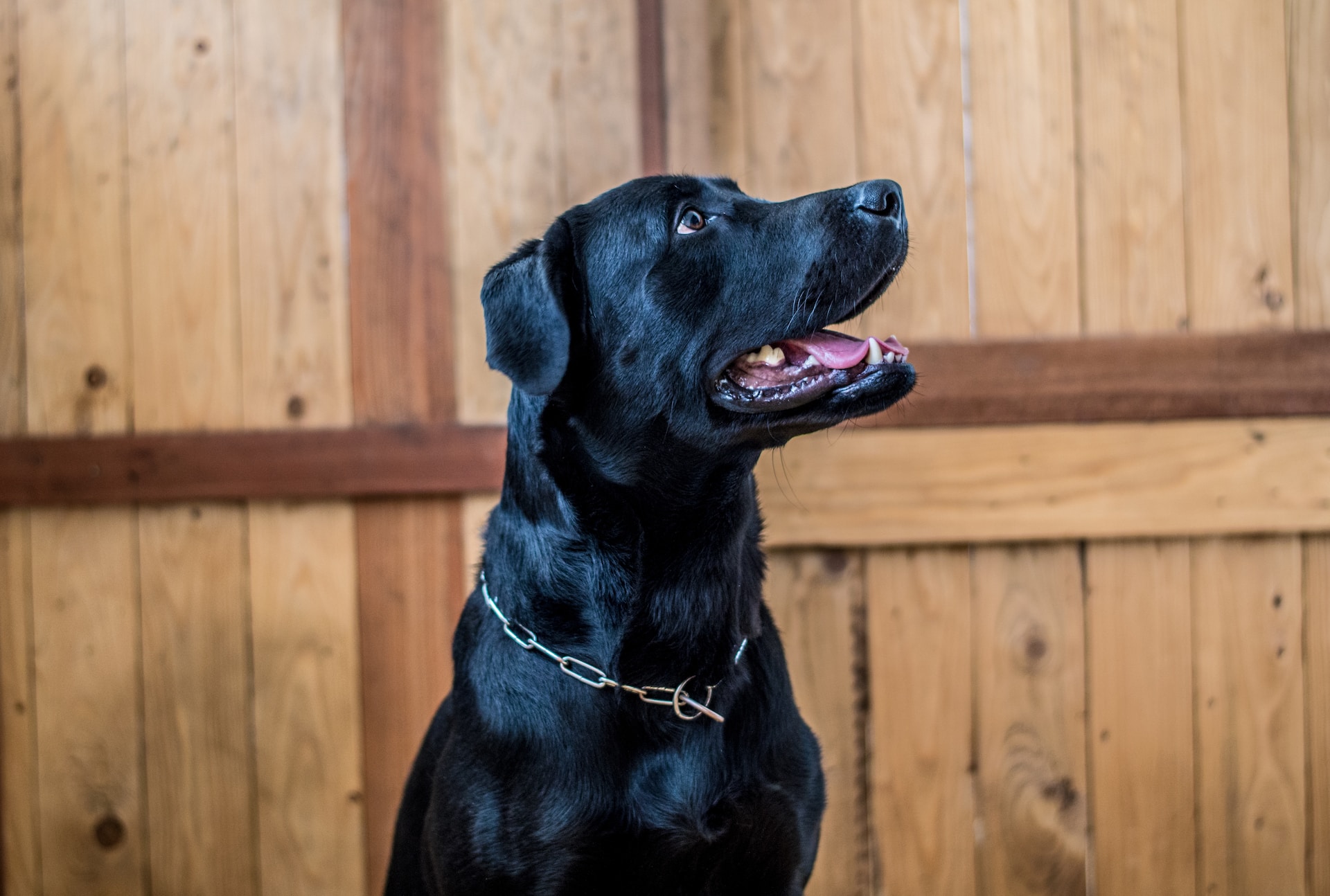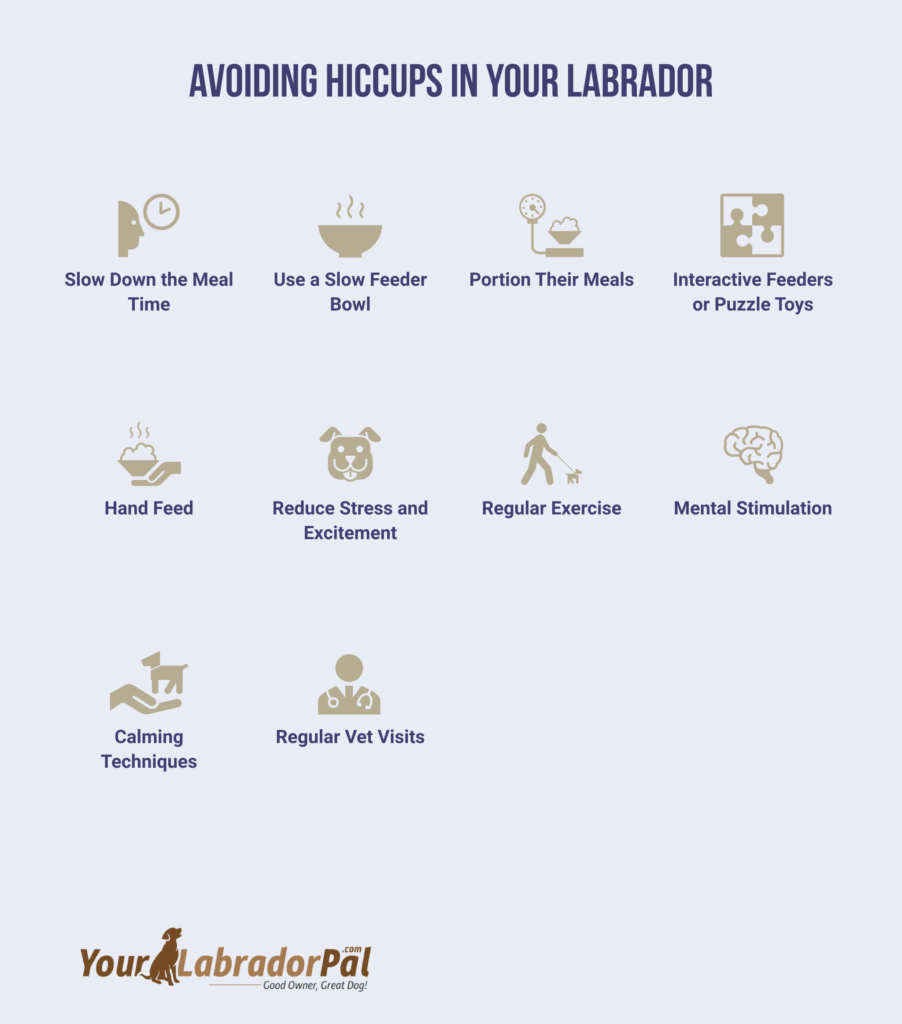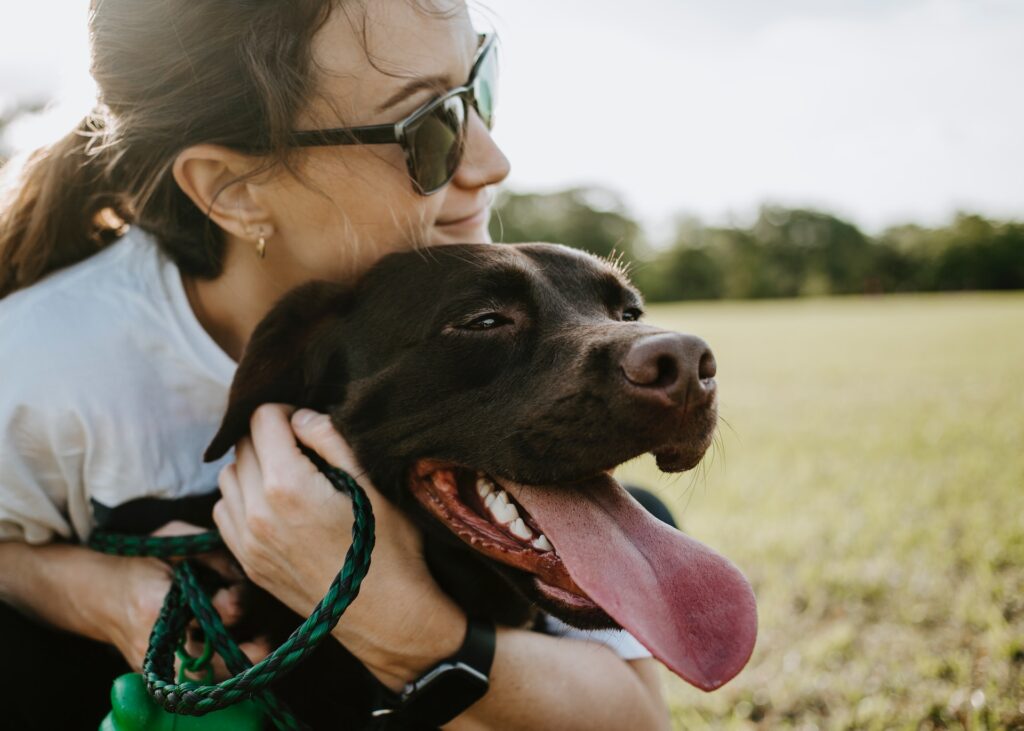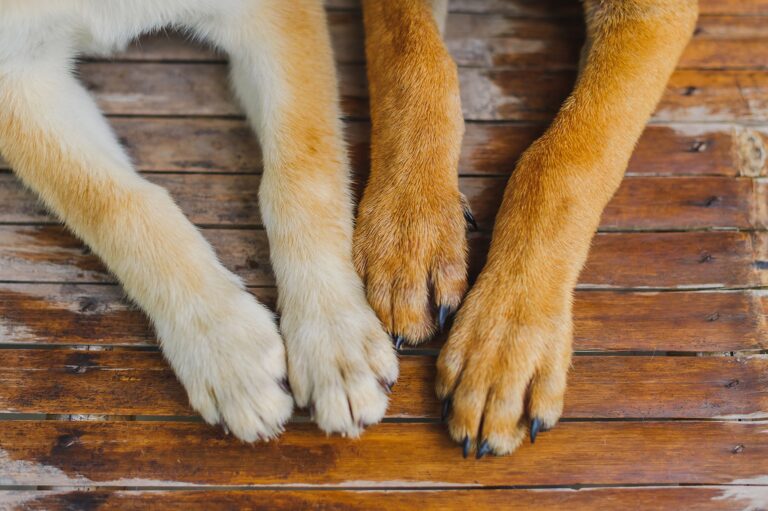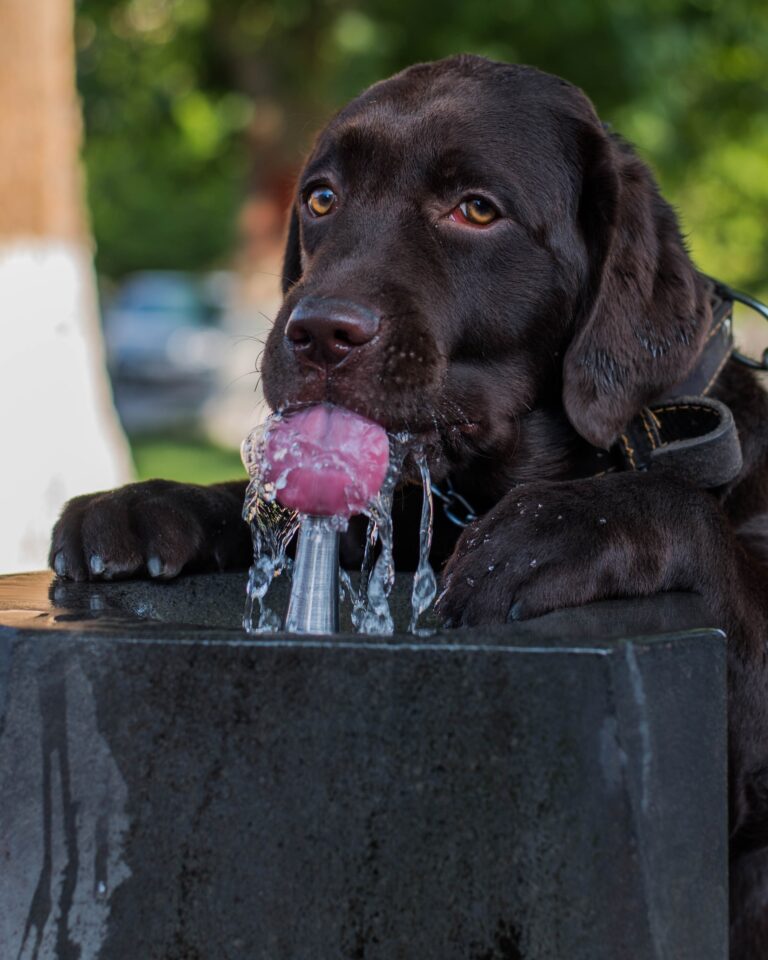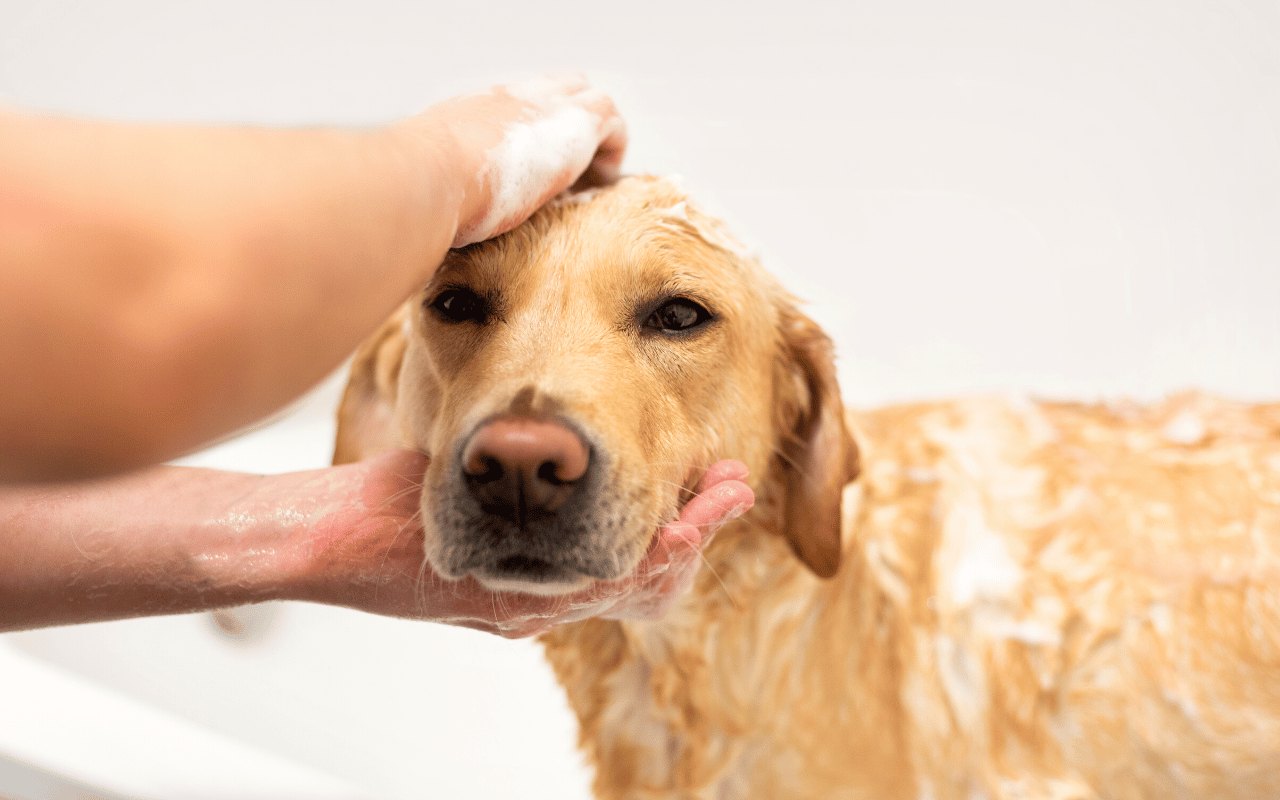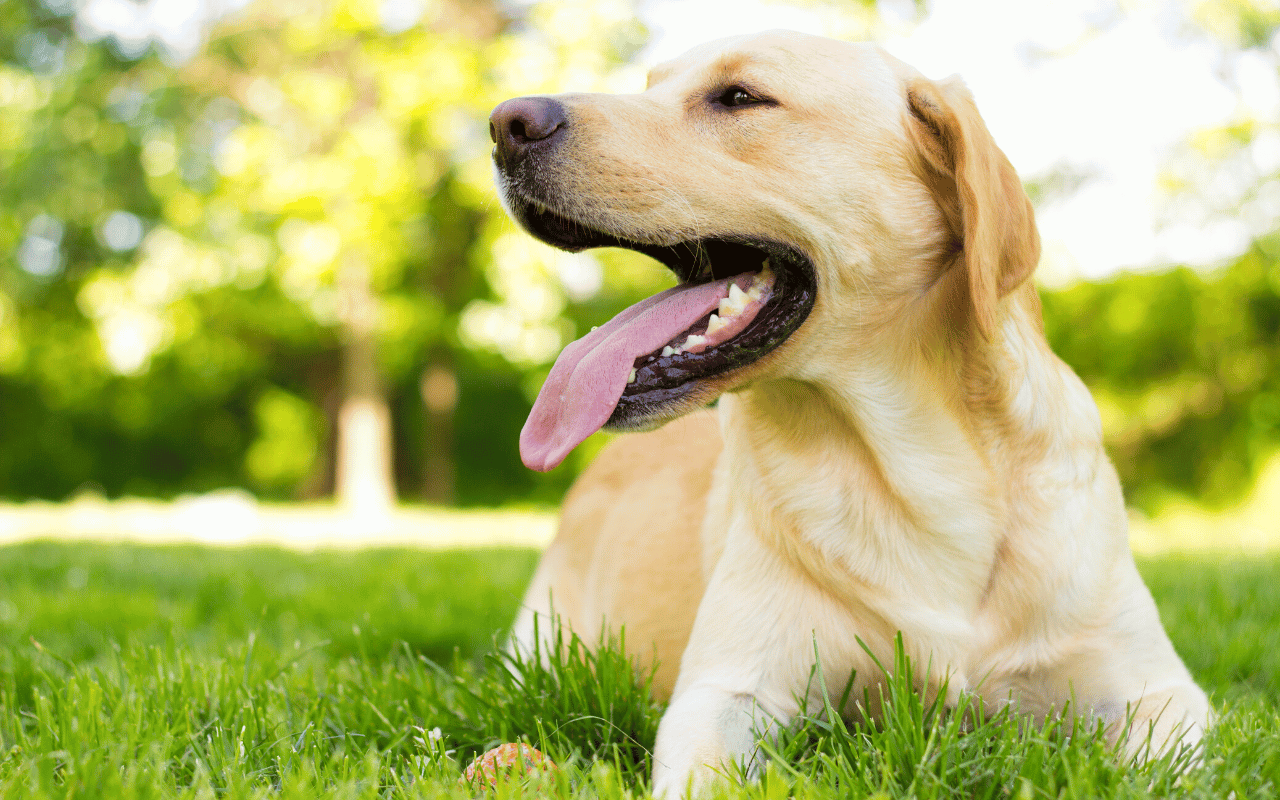Why Does My Labrador Have Hiccups All The Time: A Pet Owner’s Guide
As I sat on my porch one sunny afternoon, watching my joyful Labrador, Max, prance around the yard, I noticed something odd. Every few seconds, his body would jerk slightly, followed by a soft, rhythmic sound. It was a familiar scene that was repeated more frequently than usual. I found myself asking, “Why does my Labrador have hiccups all the time?”
This question led me to understand more about my beloved companion’s health. As a devoted pet parent, being attentive to our furry friend’s health and well-being is important. While most of us are familiar with common dog health issues like fleas or ticks, smaller signs like frequent hiccups often go unnoticed.
Understanding your Labrador’s health issues is not just about dealing with the big, scary stuff. It’s also about noticing the subtle changes in their behavior and bodily functions. Like a Labrador’s frequent hiccups, these seemingly small issues might indicate underlying health conditions or simply be a quirk of your Labrador’s physiology. Either way, paying close attention to your Labrador’s health can help ensure they live a fulfilling life.
In this post, we’ll discuss why your Labrador might have hiccups, how to tell if the hiccups are normal or due to an underlying issue, and what steps you can take as a pet parent to ensure your Labrador’s health.
Understanding Hiccups in Dogs
Hiccups in dogs, much like in humans, are a common occurrence. They might seem unusual and, at times, even amusing. But what exactly are these peculiar sounds, and why do they occur? Let’s delve into understanding dog hiccups, especially in our friendly Labradors.
What Are Hiccups?
Hiccups are essentially involuntary contractions, or spasms, of the diaphragm. The diaphragm is a large muscle that separates your dog’s chest from its abdomen. It plays a vital role in breathing – when it contracts, it creates a vacuum in the chest that pulls air into the lungs.
However, when the diaphragm experiences a spasm, it contracts jerky. This rapid contraction causes the vocal cords to close suddenly, which results in the characteristic ‘hic’ sound of a hiccup. Imagine it like a vinyl record skipping a beat, interrupting the smooth rhythm of your dog’s breathing pattern.
For example, your Labrador could be enjoying their usual playtime, fetching balls, and you hear a small ‘hic’ break their panting rhythm out of nowhere. You look over and see them slightly startled, perhaps even looking around curiously for the source of this sound. That’s a hiccup!
Why Does My Labrador Have Hiccups All The Time: Common Causes
Labradors are a joy with their boundless energy and love for food. However, these traits can sometimes lead to frequent hiccups. Understanding the common causes behind these hiccups is important to ensure your furry friend is healthy and comfortable.
🥩Eating or Drinking Too Quickly
One of the most common causes of hiccups in Labradors is their tendency to eat or drink too quickly. Known for their enthusiastic and often ravenous approach to meal times, Labradors can sometimes gulp down their food and water at an alarming speed.
When dogs are eating or drinking water rapidly, they swallow air, food, or water. This excess air accumulates in the stomach and puts pressure on the diaphragm. The diaphragm responds to this pressure by contracting rapidly, leading to hiccups.
Imagine racing with your Labrador to finish their meal first. You’d probably lose every time! Their enthusiasm for food, although endearing, can lead to them practically inhaling their meals, resulting in a case of hiccups.
This rapid eating habit can be particularly prevalent in multi-dog households, where competition for food might encourage fast eating. Similarly, if your Labrador has a high metabolic rate or is on a diet that requires consuming large quantities of food, they might also develop a tendency to eat quickly, thereby leading to frequent hiccups.
💢Excitement or Stress
Labradors are known for their lively and exuberant nature. They are easily excited, whether by seeing a squirrel in the backyard, the jingle of a leash signaling walk time, or the arrival of a new toy. This high energy and excitement can sometimes lead to hiccups.
When Labradors get excited, their breathing pattern changes. They tend to pant more, and this rapid, shallow breathing can cause the diaphragm to contract, leading to hiccups. Let’s imagine you’ve just come home from work. Your Labrador, thrilled to see you after a long day, bounds over with a wagging tail and happy pants. Amid their joyous greeting, they start hiccuping. That’s excitement-induced hiccups!
On the other end, stress can also trigger hiccups in Labradors. Moving to a new home, the arrival of a new pet or family member, loud noises like fireworks or storms – all these situations can cause stress in your Labrador, which can manifest as hiccups.
For instance, if a thunderstorm rages outside, your usually brave Labrador might become anxious, their body trembling slightly. Amidst their stress, you might notice the soft ‘hic’ of hiccups.
💊Medications and Health Conditions
While rapid eating and heightened emotions are common causes of hiccups in Labradors, sometimes the trigger could be something more complex, like certain medications or underlying health conditions.
Medication-Induced Hiccups
Certain medications can cause hiccups in Labradors. These could be drugs your dog takes for a different health issue. For instance, vets often use steroids to treat various conditions in dogs, from arthritis allergies, which can sometimes cause hiccups.
Imagine you’ve recently started your Labrador on a new medication to manage their itchy skin. After a few days, you notice they’ve started having bouts of hiccups. It might be a good idea to consult your vet to see if the medication could be the culprit.
It’s crucial to keep track of any new medications your Labrador is on and monitor them for any side effects, including hiccups. If you suspect a particular drug is causing the hiccups, speak to your vet about possible alternatives or solutions.
Health Condition-Related Hiccups
Sometimes, hiccups can be a symptom of an underlying health condition. Respiratory disorders, gastrointestinal diseases, or neurological issues can all potentially lead to hiccups.
For example, if your Labrador has been diagnosed with pneumonia or bronchitis, the irritation and inflammation in their respiratory system might lead to hiccups. Similarly, gastrointestinal issues, such as gastritis or inflammatory bowel disease, might cause hiccups due to upset in the stomach or intestines.
Other symptoms usually accompany these health-related hiccups. Your Labrador might appear lethargic, refuse to eat, cough, or have difficulty breathing. If you notice these signs and persistent hiccups, it’s important to seek veterinary attention immediately.
How to Identify Hiccups in Your Labrador
As a dog parent, it’s crucial to identify different signs and symptoms in your Labrador. It includes being able to recognize when they have hiccups. But how do you distinguish between a hiccup and other similar conditions? Let’s break it down.
✅Recognizing the Symptoms of Hiccups
Hiccups in Labradors typically present as a regular, rhythmic sound originating from their diaphragm area. Your dog’s body often makes slight jerking or twitching movements accompanying this sound.
Picture this: your Labrador is sprawled on their favorite rug, enjoying a midday nap. Suddenly, you notice their body jerk slightly at regular intervals, followed by a soft ‘hic’ sound. That’s your dog having a hiccup!
Unlike coughing or choking, hiccups are usually not distressing for the dog. Your Labrador might appear slightly startled or confused, especially if it’s their first hiccup experience, but they generally remain calm and relaxed.
However, if your Labrador appears distressed, agitated, or tries to hide, it could be a sign that they’re uncomfortable or in pain, and you should consult a vet immediately.
✅Differentiating Hiccups from Other Conditions
While dog hiccups are quite distinctive, they can sometimes be confused with other conditions like reverse sneezing or coughing.
Reverse sneezing, also known as inspiratory paroxysmal respiration, is a common respiratory event in dogs. It’s characterized by rapid and repeated inhalation through the nose, accompanied by snorting or gagging sounds. It’s quite different from hiccups, which involve a ‘hic’ sound and are associated with the diaphragm rather than the nose.
Coughing in dogs, on the other hand, is usually louder and seems more strenuous than hiccups. It’s often a sign of irritation or problem in the throat, lungs, or airways.
For instance, if your Labrador is making loud, hacking sounds and seems to be trying to expel something from their throat, they’re likely coughing, not hiccuping.
Determining between dog hiccups and other conditions is important in ensuring your Labrador receives appropriate care and treatment. If you’re unsure about what’s causing your Labrador’s symptoms, it’s best to consult a vet.
Possible Health Risks Associated with Frequent Hiccups
While hiccups in Labradors are usually harmless and short-lived, they can sometimes be a sign of a more serious health issue. Chronic or prolonged hiccups that last hours or days might indicate an underlying medical problem.
Conditions such as pneumonia, pleurisy (inflammation of the tissues that line the lungs and chest cavity), or disorders of the stomach, esophagus, or bowel can lead to persistent hiccups. In rare cases, conditions like liver disease, kidney disease, or certain neurological disorders, including stroke or brain tumors, may cause chronic hiccups.
For example, if your Labrador continues to hiccup for several hours, or other symptoms like loss of appetite, lethargy, difficulty breathing, or sudden onset of numbness or coordination problems accompany the hiccups, you must seek veterinary care immediately. These could be signs of a serious condition that requires prompt medical attention.
It’s always better to err on the side of caution regarding your pet’s health. If your Labrador’s hiccups are frequent, severe, or causing distress, don’t hesitate to consult a vet to rule out potential health concerns.
How to Prevent Hiccups in Your Labrador
As a Labrador owner, it’s only natural to want to keep your pet as comfortable as possible. And this includes preventing frequent hiccups. Here’s how to stop hiccups in dogs.
👉🏻Slowing Down the Chow Time: Tips for More Relaxed Meal Times
One of the main triggers for hiccups in Labradors is their tendency to gulp down food and water quickly. Slowing down their eating pace can significantly reduce the chances of hiccups.
Here are some tips to help slow down your Labrador’s meal times:
- Use a Slow Feeder Bowl: Slow feeder bowls include ridges or compartments that break up the bowl’s space, which prevents your dog from gulping down large amounts of food at once. For example, if your Labrador usually finishes their meal within 2 minutes, a slow feeder bowl might extend this to 5-10 minutes, reducing the risk of hiccups.
- Portion Their Meals: Instead of giving your Labrador one large meal, consider dividing their daily food intake into smaller, more frequent meals. It will not only slow down their eating but also aid digestion and energy distribution.
- Interactive Feeders or Puzzle Toys: These feeders or toys require your dog to work a little to get their food, naturally slowing their eating. For instance, you could use a Kong toy filled with kibble and peanut butter. Your Labrador will need to chew and lick the toy to get to their food, prolonging the eating process and reducing the air they swallow.
- Hand Feed: While it may be time-consuming, hand feeding can effectively control your Labrador’s eating speed. It can also be a great bonding experience!
Implementing these strategies can help prevent your Labrador from developing hiccups and improve their overall digestion. Remember, every dog is unique, so finding the best method for your Labrador might take trial and error.
👉🏻Reduce Stress and Excitement in Your Labrador
While Labradors are naturally high-energy dogs, managing their stress and excitement levels can help prevent bouts of hiccups. Here are some strategies to maintain a calm and relaxed environment for your pet:
- Regular Exercise: Regular physical activity is key to managing your Labrador’s energy levels. Long walks, playtime in the backyard, or a game of fetch at the park can help burn off excess energy and reduce over-excitement.
- Mental Stimulation: Mental stimulation is just as important as physical exercise. Puzzle toys, training sessions, or interactive games can engage your Labrador’s mind and reduce anxiety or boredom-induced stress.
- Routine and Structure: Labradors thrive on routine. Consistent meal times, walk times, and bedtime can provide security and reduce stress.
- Calming Techniques: If your Labrador is prone to stress or anxiety, calming techniques like gentle petting, massage, or soothing music can help relax them. Some dog owners also succeed with products like anxiety wraps or calming diffusers.
- Socialization: Proper socialization can help prevent stress or fear in various situations. Gradually exposing your Labrador to different people, adult dogs, environments, and experiences can help them become more comfortable and confident.
For instance, let’s say your Labrador gets overly excited every time the doorbell rings. Instead of scolding them, turn this into a training opportunity. You could teach them a “quiet” command or ask them to go to a specific spot when they hear the doorbell. Over time, this can help reduce their excitement in this situation.
Remember, each dog is unique, and what works for one might not work for another. Finding the best methods to reduce stress and excitement in your Labrador might take some trial and error. The key is to be patient and consistent. If your Labrador’s stress or excitement levels seem unmanageable, consider seeking help from a professional dog trainer or a veterinary behaviorist.
👉🏻Regular Vet Visits: Keeping Your Labrador in Check
Regular veterinary check-ups are crucial for maintaining your Labrador’s health and well-being. They can also help identify potential issues, including frequent hiccups before they become serious problems.
During a regular check-up, your vet will conduct a thorough physical examination of your Labrador. It includes checking their heart rate, respiratory rate, body temperature, and weight. They’ll also examine your dog’s coat, skin, eyes, ears, teeth, and gums for signs of illness or disease.
If your Labrador has been experiencing frequent hiccups, it’s important to mention this to your vet. They may want to perform additional tests, such as X-rays or blood tests, to rule out any underlying conditions causing the hiccups.
In addition to these regular check-ups, it’s also important to keep up with your Labrador’s vaccinations and parasite control treatments. These preventative measures can protect your dog from diseases leading to hiccups or other health issues.
For example, during one of these regular check-ups, your vet notices that your Labrador has gained significant weight. Obesity in dogs can lead to numerous health issues, including increased pressure on the diaphragm that can result in frequent hiccups. In this case, your vet can provide advice on diet and exercise to help your Labrador lose weight and reduce their hiccup episodes.
Remember, regular vet visits are an essential part of responsible pet ownership. They not only help ensure your Labrador’s health but also provide an opportunity to discuss any concerns or questions you may have about your pet’s behavior or well-being, including issues like hiccups.
What to Do if Your Labrador Has Hiccups
Knowing how to handle the situation is essential if your Labrador has hiccups. While most hiccups are harmless and will resolve independently, you can try a few home remedies to help your dog. But when should you consult a vet? Let’s delve into this.
💕Home Remedies for Hiccups in Labradors
There are a few simple home remedies that you can try if your Labrador has a case of the hiccups:
- Water: Encouraging your Labrador to drink water can sometimes help stop hiccups. Drinking can help reset their diaphragm and stop the spasms causing the hiccups.
- Distraction: Sometimes, simply distracting your dog can help stop the hiccups. Engage them in a game or give them a toy. The change in breathing pattern during play or excitement might help end the hiccup episode.
- Massage: Gently rubbing your dog’s chest can help relax their diaphragm, which may help stop the hiccups. Make sure to be gentle and observe your dog’s reactions. If they seem uncomfortable, stop immediately.
- Relaxation: If your Labrador gets hiccups when they’re excited or stressed, helping them relax can stop the hiccups. It could involve calming petting, soft music, or comfortable resting space.
Remember, these remedies may not work for every dog, and what works once may not work every time. Monitoring your dog and ensuring the hiccups aren’t causing distress is always important.
🩺When to Seek Veterinary Help
While occasional hiccups in Labradors are generally nothing to worry about, there are situations where it’s best to consult a vet:
- Prolonged Hiccups: If your dog’s hiccups last several hours or more, it’s a good idea to consult your vet. Prolonged hiccups can cause fatigue and discomfort and, in rare cases, might be a symptom of a more serious health issue.
- Frequent Hiccups: If your Labrador frequently gets hiccups, especially if they’re associated with eating, it might indicate a problem like gastroesophageal reflux or a diet-related issue.
- Other Symptoms: If your Labrador’s hiccups include other symptoms such as loss of appetite, lethargy, difficulty breathing, or coughing, you should contact your vet immediately.
For instance, if your Labrador has been hiccuping on and off all day and seems lethargic and uninterested in their dinner, it’s time to call the vet. These could be signs of a more serious underlying condition that needs immediate attention.
Remember, it’s always better to be safe than sorry about your Labrador’s health. If you’re unsure, don’t hesitate to contact your vet. They help ensure your dog stays as healthy and happy as possible.
Frequently Asked Questions
Q: Should I be worried if my Labrador has hiccups?
A: If you’re wondering, “Why does my puppy get hiccups so often?”, it can be alarming to notice your furry friend experiencing hiccups. However, regarding Labradors, hiccups are generally not a cause for concern. These lovable dogs tend to gulp down their food and water too quickly, which can lead to hiccups. Additionally, hiccups in Labradors can be a sign of excitement or anxiety. However, if they persist for several hours or have other symptoms like loss of appetite or difficulty breathing, consult your vet immediately.
Q: Can I give my Labrador anything to stop the hiccups?
A: Hiccups can be quite bothersome for both humans and pets alike. While there is no surefire cure for hiccups in dogs, you can try a few things to help quiet them down. Some dog owners suggest giving your pup some peanut butter or honey to help soothe their throat and reset their breathing patterns. Another option is gently massaging your dog’s chest to help stimulate their diaphragm and reduce the duration of their hiccups. However, it’s important to remember that hiccups are often harmless and usually go away independently without any treatment required.
Q: Should I be worried if my dog is hiccuping?
A: As a pet owner, you may have occasionally noticed your furry friend experiencing hiccups. But why does my puppy get hiccups every day than usual? Is it a cause for concern? While puppy hiccups are generally harmless, experiencing them every day could point toward an underlying medical condition. It’s always better to be safe than sorry and consult a veterinarian if the frequency of hiccups has increased. In the meantime, ensure that your dog is hydrated and not eating or drinking too quickly, which can cause hiccups. A healthy and happy pup means less worry for its loving owner.
Final Words
While hiccups in your Labrador can be a bit concerning, they are often a normal part of their life and nothing to worry about. By understanding what triggers hiccups and how to manage them effectively, you can help ensure your Labrador’s comfort and well-being.
Slowing meal times, reducing stress and excitement, and regular veterinary check-ups are key strategies for preventing hiccups. And should your Labrador get hiccups, know there are home remedies to try and signs to watch out for when a vet consultation is necessary.
Your love and concern for your Labrador shine through in your quest for knowledge. Keep observing, learning, and doing your best for your canine companion. They’re lucky to have you! Please comment below if you have any further questions or thoughts or want to share your personal experiences dealing with hiccups in your Labrador. Together, we can create a supportive community for all Labrador owners navigating the hiccup hurdle.

